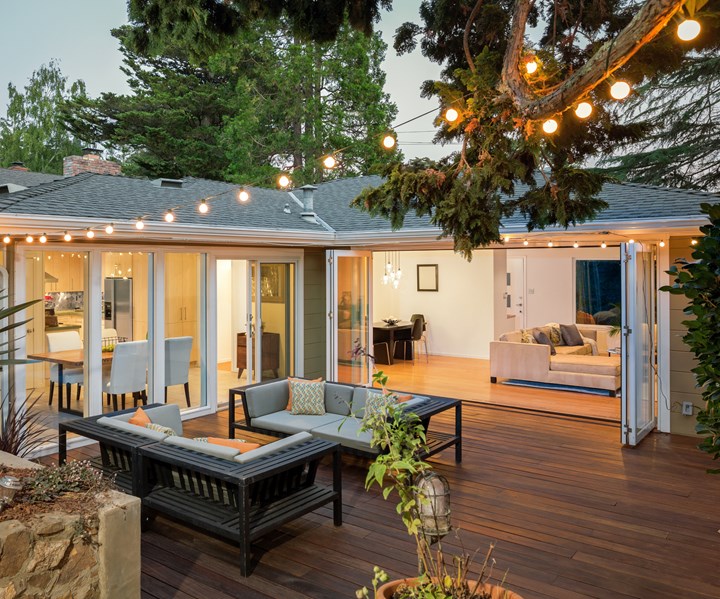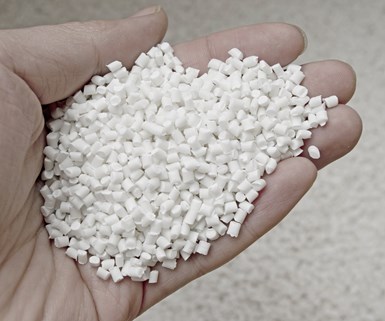Hybrid polymer system designed for sustainable wood-plastic composites
Dow’s AMPLIFY Si PE 1000 silicone-polyethylene hybrid polymer system is said to enable stronger wood-plastic composites for decking and other applications.

The wood-plastic composite deck paneling on this patio was produced using AMPLIFY Si PE 1000. Source | Dow
Dow (Midland, Mich., U.S.) has developed AMPLIFY Si Silicone Enhanced Polymer Systems (SEPS), a silicone-polyethylene hybrid technology that is said to improve product performance and help divert plastic waste from landfills. AMPLIFY Si PE 1000, designed for wood-plastic composite decking, is the first of a series of products Dow expects to launch under the new SEPS platform.
“Dow’s AMPLIFY Si PE 1000 enables manufacturers to utilize more economical options, such as a variety of recycled plastic and higher levels of fillers, in their wood composite manufacturing processes,” says Mauro Gregorio, business president, Dow Consumer Solutions. “By incorporating this

Source | Dow
product into wood-plastic composite boards, manufacturers can more easily bring new life to recycled plastic, a tremendous contribution to sustainability and product reuse. AMPLIFY Si PE 1000 also reduces energy costs and carbon footprint associated with this manufacturing process.”
AMPLIFY Si PE 1000 is said to enable higher throughput, lower melt temperature and less thermal degradation, as well as higher production rates, lower rejection rates and overall improvement in the tensile and flex strength of wood-plastic composite boards.
Beyond decking, Dow says that AMPLIFY Si SEPS can be used with in applications such as docks, railing, wall cladding, siding, fencing, window profiles, automotive and more.
“This new family of products, which utilizes ‘silicone-polyethylene hybrid technology,’ drives sustainability and innovation across many industries, provides a unique value proposition to our customers and helps to facilitate the transition to a circular economy,” says Gregorio.
AMPLIFY Si PE 1000 will be featured at K 2019 from Oct. 16-23, 2019 in Düsseldorf, Germany.
Related Content
-
All-recycled, needle-punched nonwoven CFRP slashes carbon footprint of Formula 2 seat
Dallara and Tenowo collaborate to produce a race-ready Formula 2 seat using recycled carbon fiber, reducing CO2 emissions by 97.5% compared to virgin materials.
-
Partners recycle A350 composite production waste into adjustable-length rods for MFFD
Herone, Spiral RTC, Teijin Carbon Europe and Collins Aerospace Almere recycle A350 thermoplastic composite clips/cleats waste into rods for the all-thermoplastic composite Multifunctional Fuselage Demonstrator’s crown.
-
Bladder-assisted compression molding derivative produces complex, autoclave-quality automotive parts
HP Composites’ AirPower technology enables high-rate CFRP roof production with 50% energy savings for the Maserati MC20.
.jpg;width=70;height=70;mode=crop)





